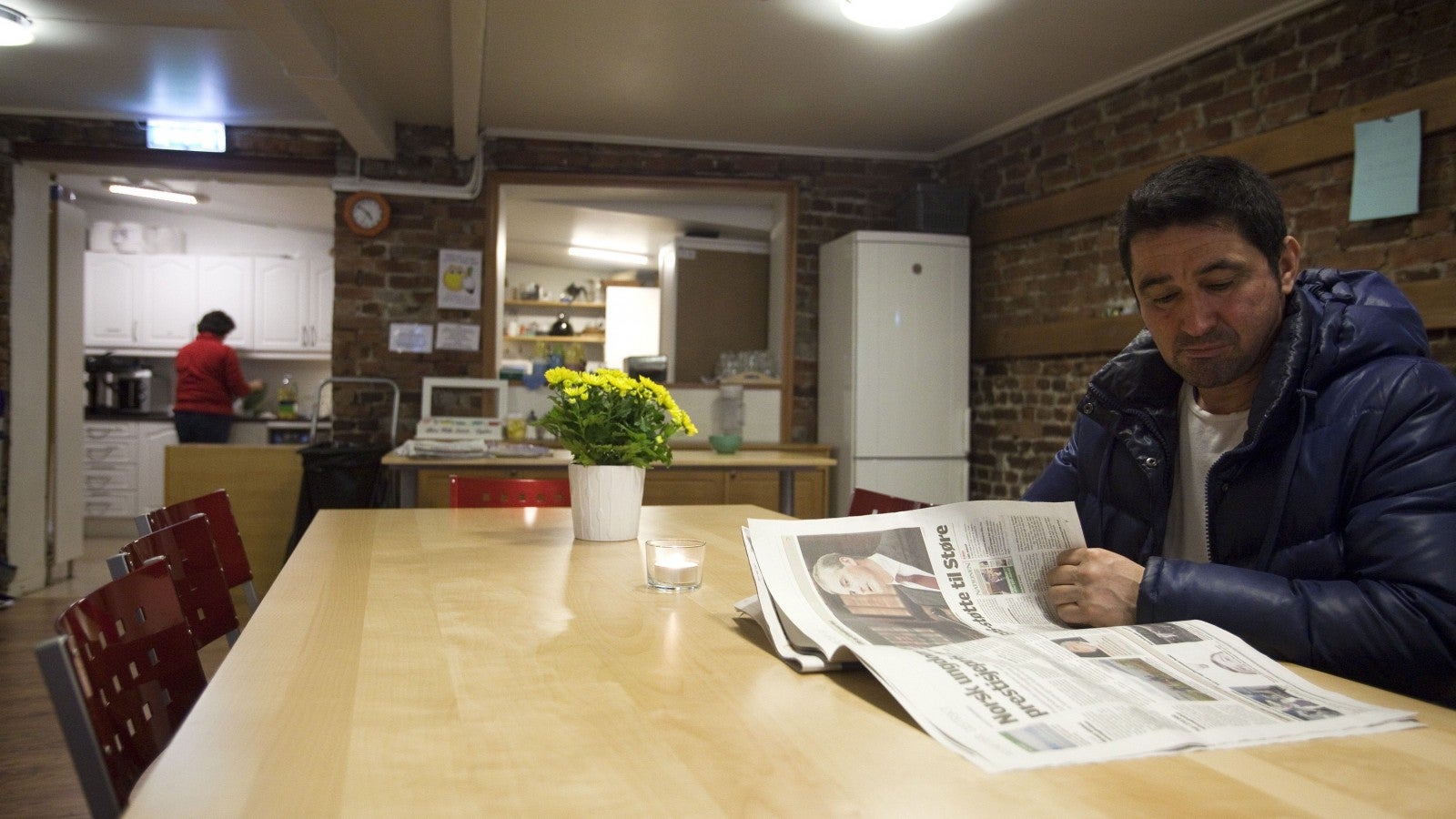All adults in Norway have the right to free education—including refugees
This post has been corrected.


This post has been corrected.
Norway’s famously sturdy social safety net is tightly woven around education—not only for children growing up in the country’s traditional schooling system, but for adults who missed out on the regular route to university.
Every adult over the age of 24 and living legally in Norway is entitled to free education up to secondary, or high-school, level. (If they need primary-level education to get them to the standard needed for the secondary phase, they’re entitled to that, too.) And so long as they have followed a high school path, they can get a university degree for free as well, with the small caveat that they pay up to €70 ($78) each semester to a “student association” for general welfare provision.
This also applies to refugees with legal status—which is in itself a rub, since gaining legal status means being officially recognized as an asylum seeker. But the country is working on inclusivity. A recent report (pdf) by the Organisation for Economic Co-operation and Development (OECD) highlighted the efforts Norway is making to extend its educational guarantees to migrants. The report reflects the OECD’s latest yearly study on immigration. It was published in September, during one of the thorniest years for the subject since the group’s inception in 1961.
The question now will be how such a liberal and inclusive system will cope with a potentially massive influx of people in need of education, and specifically the Norwegian language tuition that allows immigrants from other nations to access the rest of the educational package.
Since 2004, newly arrived refugees between the ages of 18 and 55, who are granted legal status, also have not only the right but are obligated to learn Norwegian. Instruction is provided free of charge and comes with additional financial support, normally for two years, according to Vox, the Norwegian government agency tasked, among other things, with overseeing adult education in the country. The agency tells Quartz: “The Norwegian government is aware of the importance of education, whether it is formal or non formal, as a tool for integration and inclusion of all inhabitants in the country.” A government white paper due this year aims to develop a new policy that will mean adults can “engage in training no matter their circumstances.”
Germany, which over the last months has tried to welcome refugees and lead the way for other countries to do so, is becoming overwhelmed by sheer numbers and the loneliness of its position. In 2014 (pdf, p.28), Norway had a higher proportion of asylum seekers relative to its population than Germany did. Norway recently tightened up some of its immigation policities, the OECD also noted. It remains to be seen how the country’s laudable, inclusive educational policies will stand up to the coming test.
Correction (Oct. 10): An earlier version of this post suggested only those on an academic path could go to university for free; the benefit is also available to adults who attended vocational programs—they would just be required to first do a top-up year, the agency says.